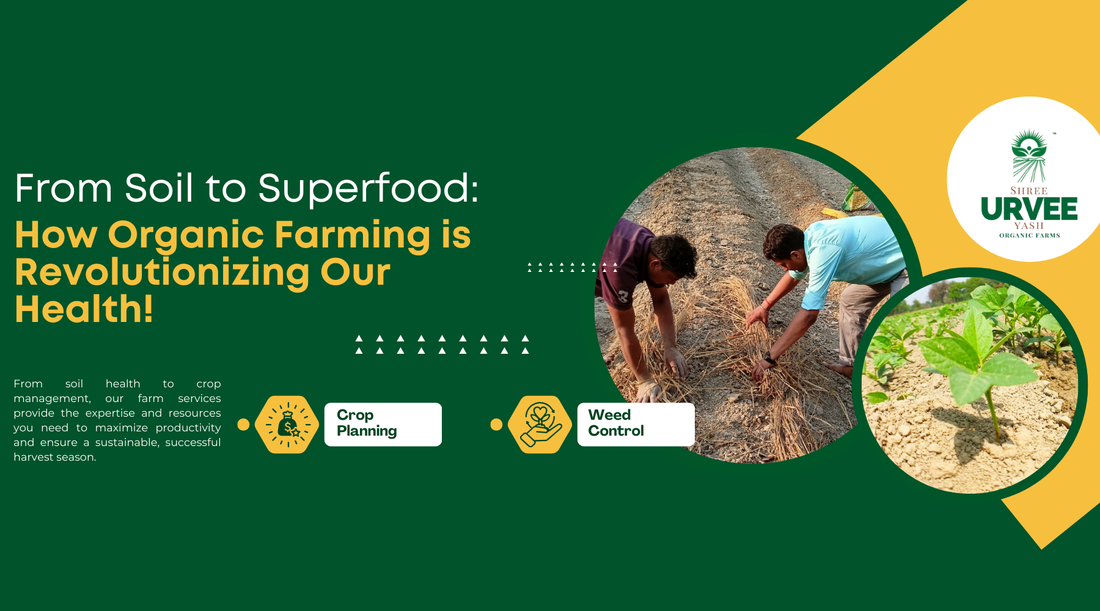Introduction
Imagine strolling through a vibrant market, surrounded by the vivid colors of fresh fruits and vegetables, each one bursting with nutrients and flavor. As more people become concerned about the quality of their food and its impact on health, organic farming has risen to prominence, revolutionizing how we eat and think about food production. This blog post will delve into the intricacies of organic farming, its substantial health benefits, and how it is reshaping the future of our diets.
Understanding Organic Farming
Organic farming refers to the agricultural practices prioritizing ecological balance and
biodiversity, focusing on natural processes rather than synthetic inputs. This results in
healthier soil, plants, and ultimately, human beings.
What Sets Organic Apart?
• No Synthetic Chemicals: Organic farmers avoid the use of synthetic fertilizers and
pesticides, emphasizing natural alternatives.
• Sustainable Practices: Techniques like crop rotation, cover cropping, and
composting help maintain soil health while minimizing environmental impact.
• Animal Welfare: Organic standards often include humane treatment of livestock, ensuring they have access to pasture and a clean living environment. When you consume organic produce, you can feel good knowing that it comes from a system designed to sustain the environment and preserve biodiversity.
Health Benefits of Organic Foods
The conversation about organic farming hinges significantly on its health benefits, both for consumers and the ecosystem.
Nutritional Superiority
Research suggests that organic foods can be more nutritious than their conventionally grown counterparts. A study published in The British Journal of Nutrition found that organic crops are higher in antioxidants and lower in cadmium and pesticide residues.
Key Differences in Nutrients:
• Higher levels of Vitamin C and essential minerals.
• Increased antioxidants, which combat oxidative stress in our bodies.
• Lower levels of harmful chemicals, reducing the risk of chronic diseases.
Impact on Food Sensitivities
Some individuals report fewer allergy symptoms and sensitivities when consuming organic foods. This might be due to lower pesticide use or the absence of genetically modified organisms (GMOs). “Organic foods offer a promise of fewer additives, which can be life-changing for those with sensitivities or allergies.”
The Role of Soil Health
Healthy soil is the cornerstone of successful organic farming, playing a crucial role in the
nutritional value of the food we consume.
Building Nutrient-Rich Soil
Organic farmers enhance soil health through:
• Composting: Returning organic matter to the soil builds fertility.
• Cover Crops: Planting crops that are not harvested helps to fix nitrogen and protect
against erosion.
• Crop Rotation: Alternating different crops helps break cycles of pests and diseases.
These practices lead to a thriving ecosystem underground, significantly impacting the quality of food produced.
Consumer Awareness and Choices
The organic movement isn’t merely about farming; it’s about empowering consumers.
Label Literacy Understanding food labels can significantly influence food choices. Look for certifications such as USDA Organic, which ensure that products meet specific organic standards.
Supporting Local Organic Farmers
Buying directly from local organic farmers at farmers' markets or joining a community-supported agriculture (CSA) program can enhance your connection to your food. This also supports the local economy and reduces the carbon footprint associated with transporting food long distances.
Conclusion
As we evaluate our food choices, organic farming stands out not only for its ability to
produce healthy and nutritious food but also for its dedication to environmental stewardship and sustainable practices. By choosing organic, we are not only benefiting our health but also supporting a farming system that honors our planet. Takeaway Message: Consider switching to organic produce in your next grocery haul. Your health and the health of our planet will thank you!
Join the conversation about organic farming and its impact on health—share your
experiences, tips, or favorite organic recipes in the comments below!
For further reading, check out the Rodale Institute for research on organic farming and health benefits.
By making informed choices, we can contribute to a healthier world, one meal at a time.

